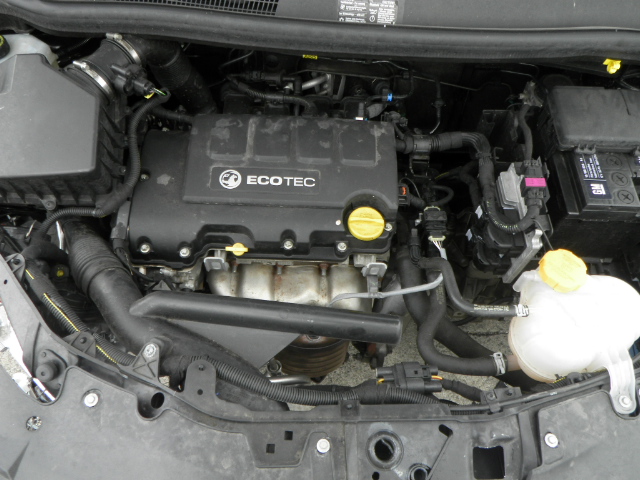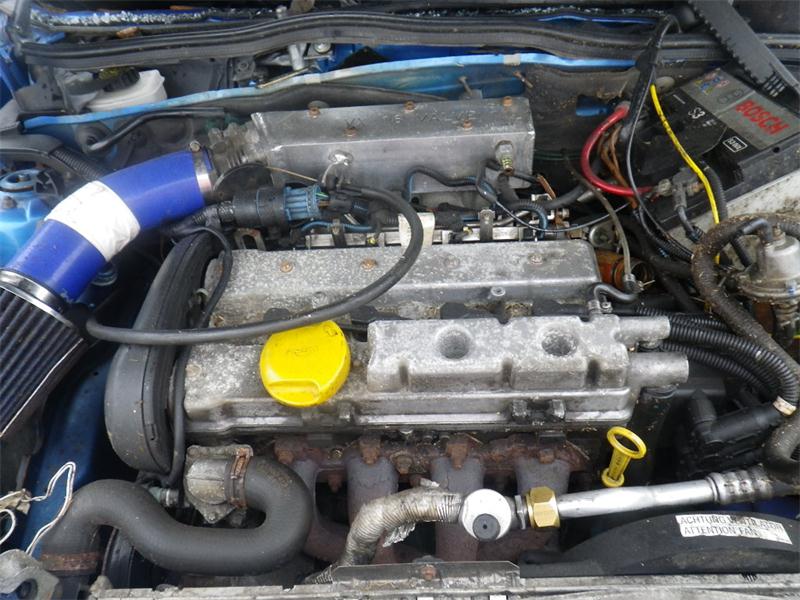Opel Corsa 1.4 Engine Price Overview: Browse the most effective Bargains at Vehicle Components Central
Opel Corsa 1.4 Engine Price Overview: Browse the most effective Bargains at Vehicle Components Central
Blog Article
Engine Purchasing Professional Tips on Choosing the Right Engine for Your Certain Demands
Selecting the appropriate engine for your certain requirements involves a complex interaction of variables that go beyond plain horse power figures. By diving into the intricacies of power versus efficiency, reviewing gas scores, and budgeting for long-term prices, one can genuinely optimize their engine option.
Power Vs. Effectiveness: Finding the Equilibrium
When choosing an engine, it is important to strike a balance in between power and effectiveness to meet your certain demands efficiently. Power describes the engine's capability to generate energy for propulsion, determining aspects like velocity, hauling ability, and general performance - Opel Corsa 1.4 Engine Price. On the various other hand, efficiency connects to how well the engine uses gas to generate power, influencing factors such as fuel economic situation and environmental kindness
Attaining the best equilibrium in between power and efficiency is crucial because an engine that is as well effective may take in extreme gas, leading to higher operating expense and unnecessary strain on the atmosphere. Alternatively, an engine that prioritizes efficiency over power may lead to slow-moving efficiency, especially popular circumstances like lugging hefty loads or driving uphill.
To make a notified decision, take into consideration variables such as your typical driving conditions, the designated use of the automobile, and your individual choices. By evaluating your demands and concerns, you can choose an engine that strikes the excellent equilibrium in between power and performance, ensuring optimal performance while reducing environmental impact and operating expense.
Understanding Engine Size and Type
To further improve the option process of an engine that strikes the ideal equilibrium between power and efficiency, it is essential to dive into the intricacies of recognizing engine dimension and type. Engine dimension refers to the total quantity of air and fuel that can be pressed with the engine cylinders.
Common engine kinds consist of inline engines, V engines, and rotary engines, each with its special benefits and disadvantages. Recognizing the interplay between engine dimension and kind is important in choosing an engine that straightens with your particular demands and priorities, whether it be power, effectiveness, or an equilibrium of both.

Consider Your Automobile's Demands
Considering your vehicle's needs is a fundamental action in the engine choice procedure to guarantee optimal performance and functionality. It is necessary to assess variables such as the meant use the car, its weight, towing capability, and gas effectiveness demands. If you are looking for an engine for a durable vehicle that will be utilized for towing, you will need an effective engine with high torque capabilities. On the other hand, if you are choosing an engine for a portable recommended you read automobile primarily utilized for city travelling, fuel effectiveness might be an extra vital variable to consider.
Additionally, the terrain on which the car will mostly run must affect your engine selection. If you frequently drive in hilly or sloping locations, a robust engine with good climbing power will be essential. Alternatively, for level terrains, a more fuel-efficient engine may be check out this site adequate. By aligning the engine specifications with your automobile's requirements, you can ensure that your car runs successfully and meets your efficiency assumptions.
Evaluating Gas Effectiveness Ratings
Assessing gas effectiveness ratings is a vital aspect of picking the best engine for your vehicle, ensuring cost financial savings and ecological sustainability. Fuel performance ratings, typically determined in miles per gallon (MPG) for gasoline engines or kilowatt-hours per 100 miles (kWh/100 miles) for electrical engines, suggest exactly how much a car can take a trip on a certain quantity of fuel or electricity. Greater MPG or lower kWh/100 miles worths represent extra effective engines, converting to decreased gas costs and reduced carbon emissions.
In addition, compare different engine choices within the very same vehicle class to identify the most cost-effective option. Aspects such as engine size, weight, aerodynamics, and hybrid or electric abilities can all affect gas performance.
Budgeting for Long-Term Prices
Strategically planning for lasting expenses is crucial when selecting an engine, ensuring monetary sustainability over the lorry's life expectancy. While the initial purchase price of an engine is a significant aspect, it is essential to take into consideration the long-term expenses related to upkeep, fixings, and gas consumption. Deciding for news a more fuel-efficient engine might have a greater in advance expense yet can lead to considerable cost savings gradually. Routine upkeep, such as oil modifications, filter replacements, and tune-ups, is necessary to keep the engine running smoothly and effectively, decreasing the risk of costly repair services down the line.
In addition, looking into the availability and cost of replacement components for the selected engine is important in budget preparation. Engines with easily available and inexpensive parts can considerably impact long-term upkeep expenses. Furthermore, considering the engine's resilience and expected life-span can aid stay clear of unexpected substitute costs in the future. By meticulously budgeting for these long-term expenses and factoring them right into the decision-making procedure, individuals can choose an engine that not just fulfills their immediate requirements yet likewise continues to be cost-effective throughout its life-span.
Final Thought
To conclude, selecting the best engine for your particular needs calls for balancing power and effectiveness, comprehending engine dimension and type, considering your car's demands, assessing fuel performance ratings, and budgeting for lasting expenses. By very carefully taking into consideration these elements, you can guarantee that you pick an engine that satisfies your needs and gives optimum efficiency for your vehicle.
To further fine-tune the selection process of an engine that strikes the optimal equilibrium in between power and effectiveness, it is necessary to delve into the ins and outs of understanding engine dimension and type. Engine size refers to the total quantity of air and fuel that can be pressed through the engine cylinders. Typical engine kinds consist of inline engines, V engines, and rotary engines, each with its special benefits and drawbacks. Understanding the interplay in between engine dimension and type is vital in picking an engine that aligns with your certain needs and priorities, whether it be power, performance, or an equilibrium of both.

Report this page